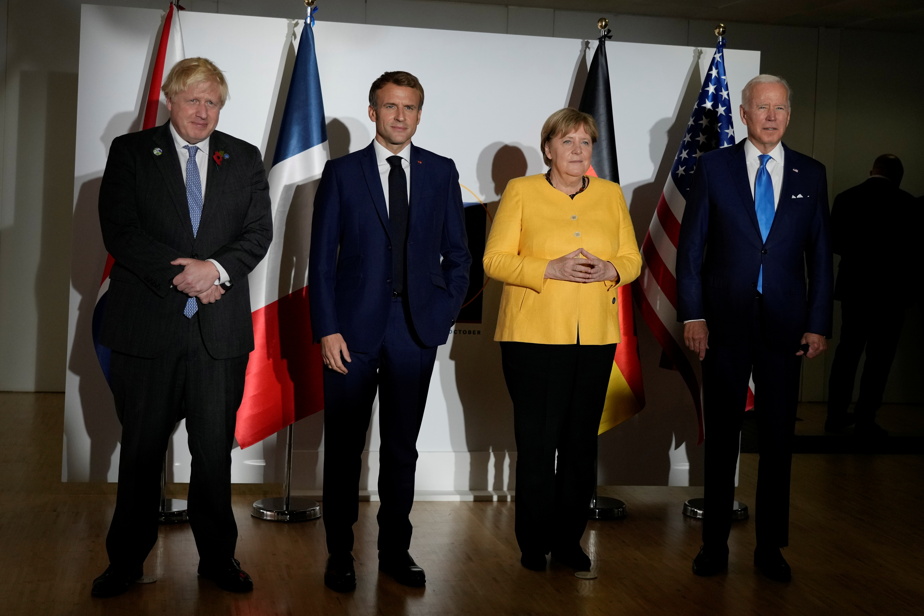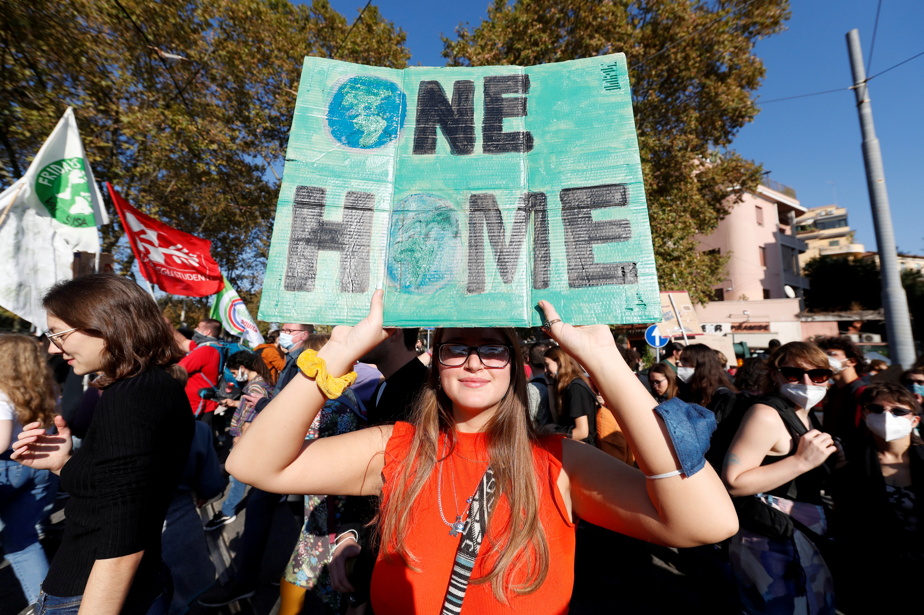(Rome) Leaders of the Group of 20 major economies, who met on Saturday in Rome, have agreed on minimum taxes for multinational companies, but discussions are continuing for a climate deal.
Sophie Esten France media agency
“Today, all G20 heads of state agreed to a historic agreement on new international tax rules, including a global minimum tax, that will end the race to the bottom on corporate taxation,” US Treasury Secretary Janet Yellen said in a statement.
The reform, negotiated under the auspices of the Organization for Economic Co-operation and Development, specifically stipulates a global minimum tax of 15% on multinational corporations, with a goal of implementation by 2023. It will be formally adopted in the press release. The G20 final is on Sunday, according to several sources close to the negotiations in Rome.
Things will be more complicated with the climate, with many calling for a strong signal on the eve of the opening Sunday of the COP26 meeting in Glasgow, Scotland.
Especially since the G20, which includes developed countries such as the United States and members of the European Union, but also large emerging economies such as China, Russia, Brazil or India, accounts for 80% of global greenhouse gas emissions.
“Today we are asking G20 leaders to stop playing amongst themselves and finally listen to people, and act for the climate as science has demanded for years,” said Simone Veccia, 19, a G20 activist. Friday for the Future, on Saturday organized a demonstration in the streets of Rome. According to the police headquarters, about 5,000 people walked, in a pleasant atmosphere, with music and drums, but under close police surveillance.
“Now is the time to try to make some vague commitments [l’accord de] Paris and integrating them into firm and rapid commitments to reduce greenhouse gas emissions,” British Prime Minister Boris Johnson confirmed in an interview broadcast by ITV on Saturday.
Photo by Yara Nardi, Reuters
Demonstrators began gathering on Saturday afternoon in the streets of Rome.
“We must be more ambitious” on the climate, European Council President Charles Michel estimated, while acknowledging that the question is particularly difficult “for some countries that depend on coal”.
China, along with many other emerging countries, is still very dependent on this carbon dioxide emitting fossil fuel.2 , in particular to operate its own power plants in the current context of the energy crisis.
The discussions are complicated by the absence in Rome of Chinese Presidents Xi Jinping and Russian President Vladimir Putin, who only participated in the G20 by videoconference.
In their first interventions on Saturday, they demanded “mutual recognition” of currently available COVID-19 vaccines, and that the Chinese and Russian vaccines have not been approved by the United States and the European Union.
Iran discussions
Concluding a meeting on the sidelines of the G20 summit, US Presidents Joe Biden, French Emmanuel Macron, Chancellor Angela Merkel and British Prime Minister Boris Johnson on Saturday expressed their “vital and growing concern” about Iran’s nuclear activities. They called on Tehran to “change course” to save the deal over its nuclear program.
Several other small committee meetings are being held on the fringes of the G20, marking the return of face-to-face multilateral meetings since the start of the pandemic.
Argentine President Alberto Fernandez in particular launched a diplomatic offensive and increased bilateral meetings with European leaders, prior to a meeting with the director of the International Monetary Fund (IMF), in the midst of negotiations over the renegotiation of the South American country’s debt.
And as the cloth burns between Paris and London over fishing rights in the canal, Emmanuel Macron will also discuss Sunday morning face-to-face with Boris Johnson. The latter said on Saturday that he “does not rule out” activating the dispute resolution tool for the first time stipulated in post-Brexit agreements with the European Union.




